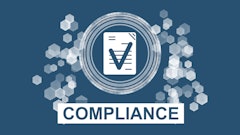Takeaways
- Network, network, network – including online, when appropriate
- Get certified
- Look for new online programs – and whole new association models
Supply Chain is a complex, winding road. Not every practitioner has been through the same experiences, or works in the same arena or specialty. There's forecasting, procurement, warehouse management, logistics and more.
Where to look for help with a problem or concern? Sure, there are tradeshows, but it's often difficult to network when you're trying to conduct business. There are social networks, such as LinkedIn and Facebook, but those have drawbacks that might not be suitable for conducting business relationships. Another solution: professional associations.
"We've done a lot of surveys," says Janine Stuck, director of member services and information technology at the Council of Supply Chain Management Professionals (CSCMP), based in Lombard, Ill. "It's all about the networking and making connections."
While CSCMP's 8,500 members come from across the supply chain — including 3PLs, 4PLs, carriers, practitioners, academics and consultants — the majority are from the manufacturing sector.
"Networking allows them to connect with other professionals and provides value throughout their entire careers," agrees Nora Neibergall, senior vice president and ISM corporate secretary for the Tempe, Ariz.-based Institute for Supply Management. ISM has 35,000 members in more than 40 countries, including affiliates in several countries — China, Philippines, Korea, Japan, Mexico, France and Canada.
One of the great values of association membership is that most have a variety of programs that cater to industry newcomers or seasoned veterans.
"It all depends on where you are and what stage of your career," Neibergall explains. "We start at the student level with scholarships and mentoring programs. We start with people early in their careers, then as they become young professionals, we offer more post-college — but not management-level — education and training."
For senior-level members, there are programs and courses designed to hone leadership and interpersonal skills.
What about Social Networks?
Why not use social networking? After all, as younger people come into the business world, they're already adept at Facebook, MySpace and LinkedIn.
"I've spoken at a number of associations around the country and here in Pittsburgh. There's a lot of gray hair," says Charles Dominick, CEO of Pittsburgh-based Next Level Purchasing, which offers online purchasing courses and certification programs. "We're not seeing new MBAs at these meetings. It's necessary to change to get people more excited about becoming supply chain professionals."
But, says Dominick, the online social networks have drawbacks that make networking more difficult. "I think what we're seeing now is a greater need for limitless networking. Facebook and LinkedIn are popular, but with a broad brush. Facebook is fine if you want to show pictures of your weekend, or your vacation. It seems uncomfortable to mix professional elements with personal. And LinkedIn is an environment of everyone else — accountants, project managers, sales force – anyone interested in professional networking. It has all populations and is useful, but general."
Certification Programs
This, of course, leads us back to professional associations as a route to more specific and focused networking. But there's more than networking to it. Most associations provide education opportunities, and many offer certification programs.
Chicago-based APICS The Association for Operations Management, which has 35,000 members, offers two certification programs: CPIM (Certified in Production and Inventory Management) and CSCP (Certified Supply Chain Professional).
"Certification is far and away the cornerstone of the organization," says CEO Abe Eshkenazi. "It really does differentiate the individuals in the field. We've certified over 100,000 members. They do benefit with pay adjustments when they're certified. They also look to us for the development of ongoing knowledge bases. Also, there's access to research. We receive unbiased information from members on best practices that will help."
ISM also offers a pair of credentials: its primary certification, CPSM (Certified Professional in Supply Management) and a new certification that launched in January, CPSD (Certified Professional in Supplier Diversity). As its name implies, CPSD is for supply management professionals who hold diversity responsibilities. About 100 members already have attained the certification.
CPSM was rolled out about two years ago from a program called Certified Purchasing Manager (recertification still is offered). "We really believe CPSM was needed to offer a broader band of supply management," says Neibergall. "We now have CPSM from China to Africa."
Next Level Purchasing offers the SPSM (Senior Professional in Supply Management). This six-course, online program covers everything from reverse auctions and e-procurement to strategic sourcing to improving supplier performance.
Education is, of course, important to advancing a career, and most associations offer a variety of online courses, seminars and webcasts. Some are free, others have a charge.
CSCMP, for example, has its CSCMP University program, which has 22 course bundles — with nine to 18 courses within each bundle — based on the education and training needs of the members' job titles.
They also offer a Supply Chain Management Essentials (SCME) Web course that covers the fundamentals of supply chain management, including planning, processes and global operations.
"We also have our Annual State of Logistics Report that comes out in June," CSCMP's Stuck says. "It covers transportation throughout the year. Every member has access so they can benchmark themselves against others throughout the year."
ISM, which says it will focus more on the young professional in the coming years, has an interesting scholarship/mentoring program. The R. Gene Richter Scholarship Program was established and named in memory of R. Gene Richter, who was a galvanizing force in the field of procurement. It was established by the R. Gene and Nancy D. Richter Foundation in 2004; in 2005, the foundation partnered with ISM to expand the scholarship program. Winners of the R. Gene Richter Scholarship are awarded $2,500 or $5,000 for educational expenses. In addition, Richter Scholars are enrolled in a mentoring program where they are paired with an executive in supply chain management and a previous Richter Scholar.
A New Model
In addition to certification and online classes, Next Level Purchasing launched a new model on April 4.
"We want to provide all the benefits, and more, that a traditional association would provide — all online and all free," says CEO Dominick. "We looked at what some others were offering, and it was high-cost and low-value. We wanted an association model that adds more value and takes out that cost."
Most yearly association dues are in the $200 per person range. The Next Level Purchasing Association will include a free monthly Webcast and a networking section with a Facebook-like interface. "Instead of having to visit a facility [or tradeshow], they can go to this section and communicate with their peers throughout the world," Dominick says. "They will have more targeted networking."
Dominick continues: "There's an online express course so they can get on-demand education. They have access to research, including our skills report, which shows savings per person by continent, savings per person by training hours, savings per person by level of education, and savings per person by industry. There's also additional research with training budget information cut several ways."
All these associations and benefits can be seen as a boon to supply chain practitioners, says APICS' Eshkenazi.
"Supply chain is a broad field, and the variety of associations are committed to the industry. We're much more complementary than competitive. If associations align activities, we are addressing the needs of our industry and members. We work with a number of them to focus on our customers," Eshkenazi concludes.
LINKS
APICS The Association for Operations Management www.apics.org
CSCMP www.cscmp.org
ISM www.ism.ws
Next Level Purchasing www.nextlevelpurchasing.com



























